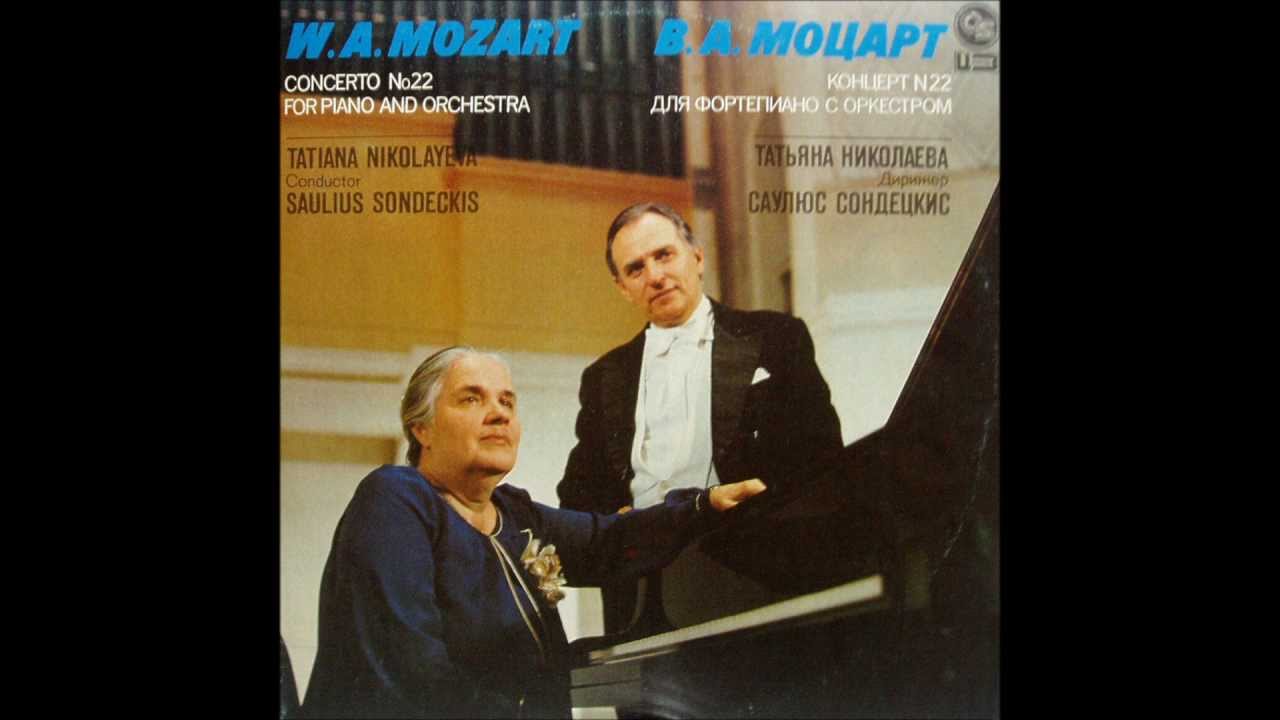Surprise, surprise: No women in conductors’ contest semi-finals
mainThe Cadaques competition has been whittled down to three semi-finalists, all male.
They are:
Michel Delanghe (Belgium)
Lorenzo Viotti (France)
Vlad Vizireanu (US)
Why don’t they just say women needn’t apply?
(Valentina Peleggi of Italy and Holly Mathieson of New Zealand – made it to the second round, but no further).

UPDATE: The final is between Lorenzo Viotti (France) & Vlad Vizireanu (USA/Romania).





Why is it a surprise? They were clearly not as good as the others
Exactly, Nick. I don’t see any need for “affirmative action” here. If there’d been a female Toscanini or Furtwangler amongst them, I’m sure gender would have had no consideration whatever.
I followed the competition on streaming. The Newzealander deserved to go on like some others that have been sent home. I do not want to say more at this stage.
What you mean is that Holly Mathieson was very good, as were a number of others, but since they had to whittle the contestants down to three, it was inevitable that some very good conductors weren’t going to make the cut.
no you wrong, when the women have been sent home conductors were still 7 not 3. But it’s not a problem of men and women, in my eye of teacher and conductor most of the conductors chosen were really ordinary
“Why don’t they just say women needn’t apply?”
What a completely negligent and sensationalist statement.
Since we’re being sensitive on this matter, I’d like to suggest that we include people of colour and someone from the LGBTQQIP2SAA community. If not, then move to public shaming, make the offenders wear rainbow stars, and commence with the book burning!
Is it really going to be like this from now on? That any competition that doesn’t include women in the finals is, essentially, sexist? Seems a bit bizarre to me.
Is there even the remotest chance that these 3 are the best candidates?
Apparently not, Tommy. Read the comments of those closer to the contest.
But their comments are as subjective as the judges.
Where?
Interesting that women candidates fared better than Spanish candidates in this competition. This is surprising considering how nationalistic Spaniards tend to be.
There were no Spanish candidates past the the 2nd round either, and in the 2nd round there were 2 women and just 1 Spaniard.
The make up of the jury could be the cause of both outcomes. The jury is predominantly old white male northern Europeans.There is one woman and one Spaniard on the jury, neither with formal training as a conductor.
Take it from me: the competitions I have won something were all clean and fair,the ones I didn’t clearly corrupt and bent.
The above competition is just another example of racism and sexism : no Asians and no women in the finals. A scandal.
“Why don’t they just say women needn’t apply?”
You are joking, right?
Slight correction to my last comment: Spaniards actually came out SLIGHTLY better than women in this competition, it turns out. There were 3, not just 1 Spanish candidates in the 2nd round, and only 2 women. Still correct to observe that all Spaniards and women were eliminated in the 2nd round.
Writing as a Haitian-American composer, I simply would like to see more voices, of varying types and representations, within the classical music industry.
Seriously, you’re going to allege bias any time a woman doesn’t advance far enough? You may be right, but any music competition is incredibly subjective. Kind of hard to prove/disprove sexism.
BTW, just who judges such a competition? I’d hope they give a vote to the orchestra; the musicians presumably know better than either the audience or even the jury which of the candidates really knows what he/she is doing.
And what about the obvious bias against Belgians? They were all eliminated before the finals. An outrageous scandal, I say.
Ha ha. Belgians? That’s not a real country…unless you means
bias against Flemish or Walloon conductors.
Being a musician, I’d bet a month’s wages that NONE of them
are worth the time and money spent on the “competition”.
Are you sure? The special prize was awarded to a young Belgian conductor…
I’d like to explain my positionon competitions generally speaking and on Cadaques. by the way, Gerhard, a Belgian is in the final…
I teach conducting in Milano Conservatorio, the main Italian music school, and I Always tell to my students that if they apply for a competition they must know before the jury names and then the application itself is an acceptance of the judges opinions. This notwithstanding they can understand if a competition is more or less fixed and decide to not compete there next time. I had a guy in the competition, not an Italian one, he passed 2 steps ad has been sent home at the 3rd step. Unfortunatelly I could not watch the streaming of his last rehearsal and I cannot say anything on him but he told me already when he arrived in Cadaques about some “rumors”. Usually i’m not prone to listen this kind of gossip but another my student gave up telling me the competition smelled. The subject of this gossip is in the final 3. I could have a look at him and honestly he could be stopped at the 2nd step. I do not want to write here the name but I will write privately to Norman. This notwithstanding it’s difficult to believe that an International jury his completely in agreement with a fix. Speaking about women the general level of the women conductors there was really ordinary even if I think the Newzealander deserved to pass the 2nd step but one of the women I have in my class is far better than them in my judgment. Anyway the idea of streaming has been a good one. Recently the Cyprus Orchestra has had her first conducting competition with only 3 jury members and I knew from the orchestra that the result almost prompted a riot. I do not think the orchestra idea is always the right one but when you know that the Orchestra Prize goes to a conductor that has not reached the final something is not clear at all. I had not students in that competition that had not a winner but one of the second prize given was known in advance by a my student when he saw the jury names. By the way the name of that person was the name that pushed the orchestra to strongly protest.
Another thing I noticed in Cadaques was the very low level of several conductors who have been admitted directly to the 1st step without passing for the eliminatory step. This means there is a problem in the selection process.
Here are the names of the jury members for the Cadaques Competition. Vittorio is absolutely right. Every candidate should become familiar with the names and their qualifications.
It’s important to understand also that the Cadaques Orchestra, which has 2 votes, is basically a freelance orchestra of “appointed” players. It is not a full time orchestra and the musicians do not audition for their jobs. As you can see, their names are posted no where on the website.
Here is the Cadaques jury. I would be interested if anyone has information on their careers or what qualifications they have to judge this competition..
– Gennady Rozhdestvensky, conductor. President
– Lutz Köhler, conductor
– Jaime Martín, Principal Conductor of the Gävle Symfoniorkester (Sweden) and Principal Conductor of the Orquestra de Cadaqués
– François Bou, General Manager of the Orquestra Simfònica de Barcelona i Nacional de Catalunya
– Cristina Rocca, Artistic Director of the Orchestre National de France
– Louwrens Langevoort, Executive and Artistic Director of the Köhlner Philharmonie
– Joji Hattori, conductor
– Orquestra de Cadaqués
Each jury member has one vote and Cadaqués Orchestra has two votes.
To Vittorio – well, the winner has been announced and now we can understand the rumours that must have been flying during the competition. Given the composition of the jury, and that most of the final candidates were of about the same level it would have been unlikely for anyone else – male or female – to have won.
Googling the winner, Lorenzo Viotti, what comes up most is not information about him but about his famous father, the conductor Marcello Viotti. The elder Viotti enjoyed a noteable career in both Europe and the US but died tragically in 2005 at age 50. It’s a heartbreaking story – read it here: http://www.mvdaily.com/articles/2005/02/viotti1.htm
The Cadaques jury, I’m sure, were aware of the Viotti name.
In all fairness, Lorenzo Viotti is a promising young conductor who turned in excellent competition performances at Cadaques. He caught my eye as someone to watch in one of the preliminary rounds. I was unaware of his father’s fame. He has a graceful, elegant style and a gracious and respectful manner with the orchestra. During a rehearsal of the new piece, he stopped and acknowledged his own error at one point. I thought that was honest and brave to do in the middle of a competition. I did not care too much for his Beethoven – his movements became large and uncontrolled at times.
I felt that the other finalist, Vlad Vizireanu, was a slightly stronger candidate based on the final round. His background in musicology and music history came shining through when he tackled the new commission by Hector Parra. He had a clear understanding of the structure, intent and organization of this piece. It was a great reading and technically superb. His Beethoven was more mature, more polished than Viotti’s, I thought.
I liked both finalists – Viotti and Vizireanu – but I probably would have voted for Vizireanu. He seemed more in command, more secure in his technique and interpretations. But it was a close
call. Viotti is talented with tremendous potential.
Do I think that Viotti’s name, the memory of his beloved and well-respected father who died so tragically, influence the jury’s decision? Yes, I’m sure it did. But Lorenzo is a fine young conductor who competed well and is a worthy recipient of this prize. It’s reassuring to know that he’s being encouraged to carry on his father’s musical legacy.
Thank you for your comment Leonardo. I knew Marcello Viotti when we were both young and he was a wonderful man and musician but this must not have any effect on a competition. I have not followed the final concert but I have seen many other conductors in this competition and some of them were better than his son at this stage, one of them was Vizireanu but not only him. I’m not so naive not to know how world goes on but I’m proud to be still affected by injustice. Do you imagine how Virizeanu feel now? The second place is worst than an elimination at first step. And this has been an injustice. Have a look at the last topic Norman has issued this morning and you will understand more what I mean.. I can only add that one of my student gave up and he did not go to Cadaques when he knew Viotti was there. May be Viotti is too good. I wish Lorenzo Viotti a career like his father had and much more luck than him in life but I’d like to see that all other young conductors had the same opportunity.
Well said, Vittorio. Your comments are interesting and enlightening. Thank you for sharing your wisdom here.